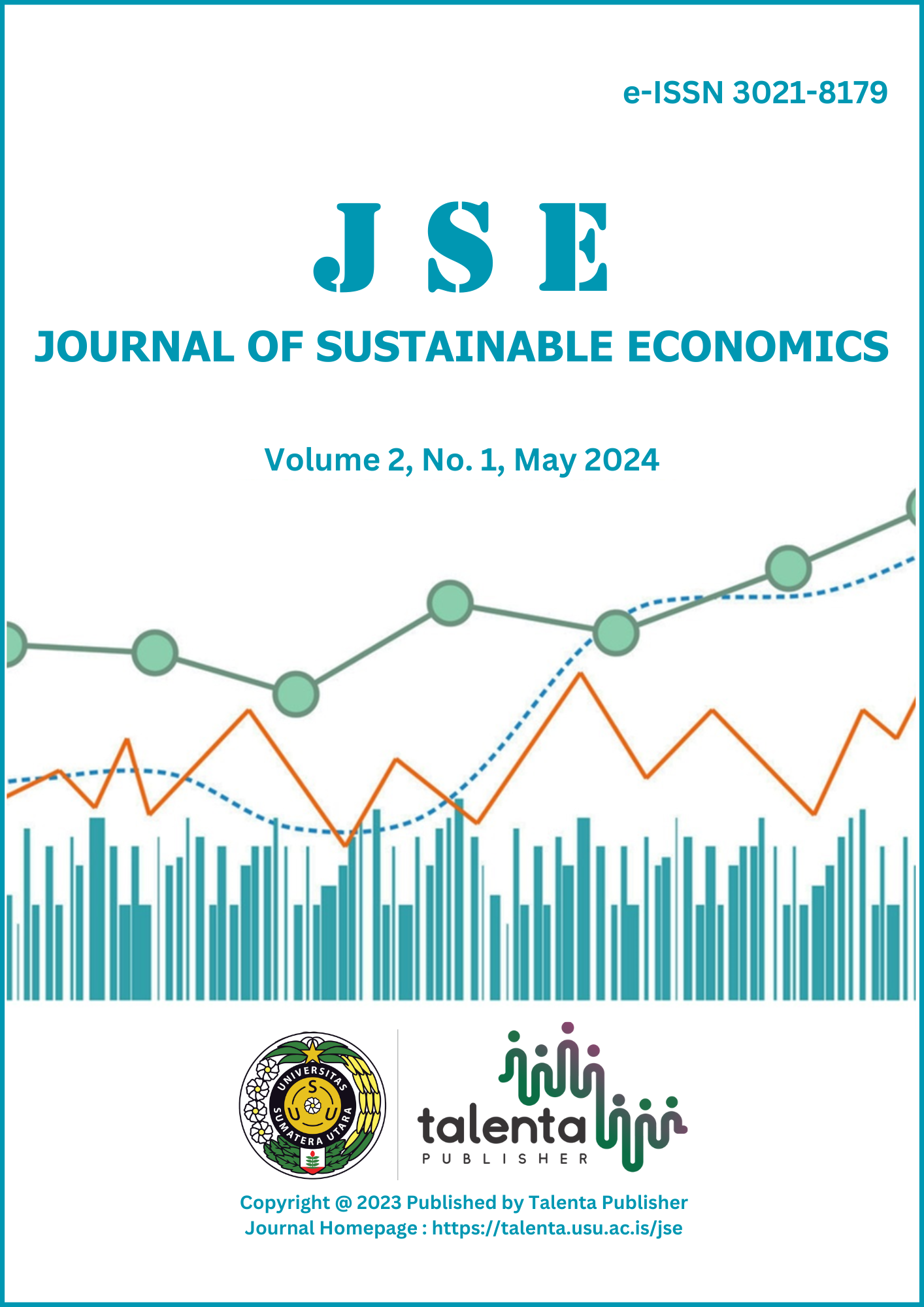Carbon Emissions In Indonesia Viewed From Tourism Aspects
DOI:
https://doi.org/10.32734/jse.v2i1.15627Keywords:
Carbon Emissions, Tourism, Foreign Direct IvestmentAbstract
The purpose of this study is to see the effects of the tourism sector on the number of carbon emissions in Indonesia. The importance of the tourist industry in Indonesia is growing in parallel with its growth and economic contribution, but It is undeniable that all economic activity, including tourism, has an impact on environmental change, particularly the rise in carbon dioxide emissions. Therefore, testing was carried out using the Autoregressive Distributed Lag (ARDL) method to see the long-term and short-term relationships between the independent variables to the dependent variable. The variables used in this study are CO2 emission values, tourist arrivals, tourism contribution to GDP and foreign direct investment. For long-term analysis, FDI has no effect on carbon emissions in Indonesia, tourist arrivals have a positive and significant effect on alpha 1%, while the contribution of tourism to GDP has a negative and significant effect on alpha 5% on carbon emissions. In the short-term the CO2 variable from the previous period has a significant positive effect on current CO2, current tourist arrivals have a significant negative effect on current CO2 (10% error rate) and the Tourism Contribution of the previous two periods has a significant negative effect on the 5% error rate to the number of carbon emissions in Indonesia.
Downloads
Downloads
Published
How to Cite
Issue
Section
License
Copyright (c) 2024 Journal of Sustainable Economics

This work is licensed under a Creative Commons Attribution-ShareAlike 4.0 International License.













